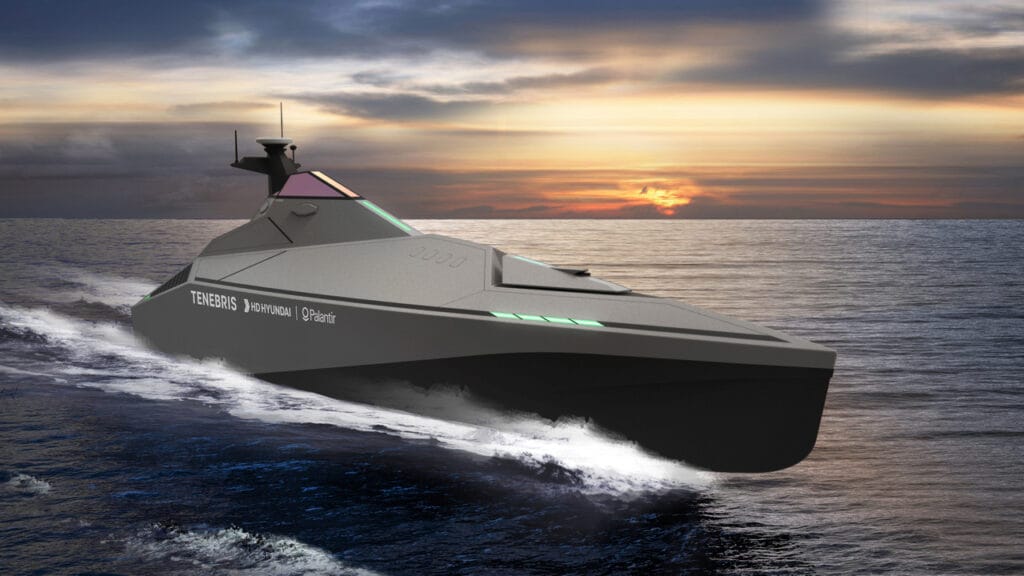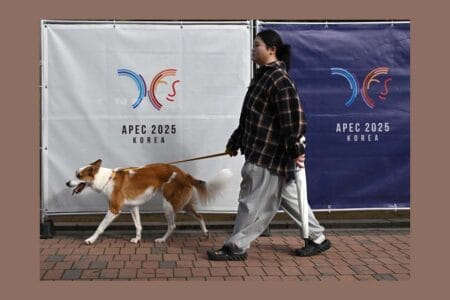October 28, 2025
SEOUL – South Korea is accelerating its adoption of artificial intelligence in national defense, signaling a decisive turn toward algorithm-driven warfare as its battlefield technologies evolve and as its population shrinks.
The Defense Acquisition Program Administration, which oversees the country’s arms procurement, has reorganized one of its key semi-autonomous units to take the lead in shaping artificial intelligence policy and strategy for next-generation weapon systems, officials said Monday.
The Defense Project Future Strategy Office (translated), operating directly under the DAPA commissioner, comprises seven members and will function for six months — or until its objectives are achieved — with the option for one extension.
The main responsibilities include establishing AI strategies for weapon systems, fostering the defense semiconductor industry through policy and regulatory updates, and managing related research and development projects.
Notably, the addition of AI policy formulation marks an expansion of the body’s original mandate and the creation of a new specialized unit.
Observers note that this reorganization underscores AI’s rise as a pillar of defense acquisition policy, as AI technology is increasingly integrated into essential military functions such as target detection, battlefield awareness and engagement decision-making.
In a document submitted for the National Assembly’s audit on Oct. 17, DAPA highlighted “advancing AI-based manned-unmanned teaming systems” as a priority, pledging to “build demonstration and infrastructure facilities for rapid development.”
This comes as Seoul faces mounting pressure to adapt to lessons from recent wars, including the Russia-Ukraine war, where low-cost, AI-enhanced drones and autonomous systems have upended traditional military doctrines.
“Managing AI policy alongside defense semiconductors will enhance efficiency in developing future weapon systems,” a government official, requesting anonymity, said. “We’re linking policy, technology and industry into one governance structure to prepare for next-generation battlefields.”
DAPA’s restructuring marks one of the first times a government body here has explicitly institutionalized AI policy for weapons systems — a sign that the technology is moving from research to deployment. The office’s mandate covers AI strategy design, R&D project oversight, and long-term planning for unmanned systems, while continuing to support semiconductor initiatives vital to hardware autonomy and data processing on the battlefield.
The agency plans to complete a series of testing and development facilities by the early 2030s, including an autonomous ground robot test site, a Defense Future Technology Research Center, and an unmanned aerial vehicle R&D runway.
Observers say the changes mirror an international shift in defense priorities: “Recent wars have shown that the decisive edge no longer lies in hardware alone,” said Kang Eun-ho, head of the Defense Industry Research Center at Jeonbuk National University. “Artificial intelligence is redefining deterrence and force effectiveness.”
Korean defense giants are rapidly integrating AI into their platforms. Hyundai Rotem began developing the K3 armored vehicle this year — a successor to its K2 tank — with AI-powered fire control and autonomous navigation. Hanwha Systems is embedding AI into missile defense systems to improve threat recognition, while Korea Aerospace Industries is testing autonomous pilot functions for its FA-50 combat jet.
Private AI firms are also joining the race. Seoul-based Funzin has developed a proprietary system that uses AI to synthesize real-time battlefield data from sensors and drones, providing commanders with live tactical analysis. The company says the effort underscores the need for “AI sovereignty” to protect classified data from foreign platforms.
Hanwha Aerospace’s multi-purpose unmanned ground vehicle. PHOTO: HANHWA AEROSPACE/THE KOREA HERALD
The urgency behind South Korea’s AI drive is also demographic. Military conscription is projected to drop from 330,000 in 2020 to 130,000 by 2041, according to Defense Ministry figures. AI-enabled autonomous systems, defense analysts say, are no longer an option but a necessity to maintain combat readiness.
The Ministry of National Defense has already established the Defense AI Center — a joint platform connecting government, academia and industry — and the Army has launched an R&D program through 2033 under its “TIGER 4.0” modernization initiative.
For fiscal year 2026, Seoul has proposed a 78 percent budget increase for AI-based unmanned combat systems and border surveillance projects, totaling 340.2 billion won ($237 million).
Analysts say the transformation could elevate South Korea from a traditional weapons exporter to a global provider of integrated AI-based defense solutions.
“If sustained, this transition could redefine Korea’s defense industry — not just as a manufacturer of advanced equipment, but as a designer of intelligent systems,” Kang at Jeonbuk University said. “It’s about preparing for wars where algorithms, not armor, may decide the outcome.”







